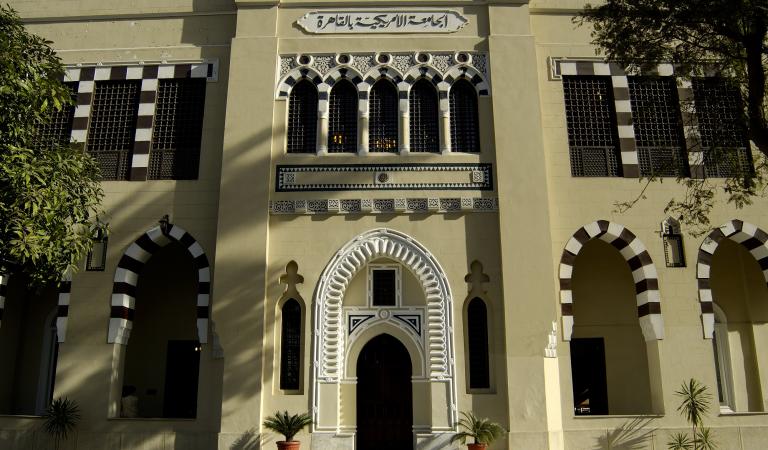While some students protested an annual tuition increase and what they describe as poor quality of education at the American University in Cairo, the private university’s ranking has improved. The UK-based ranking site QS World University Rankings showed its overall ranking jumped from around 600th in 2011 to 398th in 2012.
In response to the change in ranking, Sherif Abdul Qader, an AUC physics graduate currently applying for a PhD abroad, wrote a Facebook status recently saying, “This is extremely significant, but makes sense to anyone who knows what's happening. AUC has been keen to recruit highest profile professors from abroad, and that explains two things: the jump in the ranking, and the seven percent increase in tuition.”
Regardless of the figures, university ranking is not one of the key criteria students in Egypt rely on to choose where to obtain their higher education. Social prestige, school acceptance restrictions and financial capabilities are among the top reasons students may choose a university in Egypt.
Farah al-Shafie, currently a freshman at AUC, says, “When my parents spoke of college the only two options for them were AUC and AUD,” referring to the American University in Cairo and in Dubai. When Shafie was applying to university in 2011, Cairo University was 50 spots above the American University in Cairo.
Another current freshman at AUC, Farah Heiba, says she thought of Cairo University when applying to college but realized her International Baccalaureate High School diploma put a limitation on her. This meant her options were AUC or any other international university. “Had the revolution not happened, I would have left for a university in Canada,” Heiba says. “It remains an option.”
Heiba says she wanted to go to Cairo University because the reputation of its political science program was very strong. Since she was stuck with AUC as her only other choice, she looked into ranking when she explored other options internationally.
QS World University Rankings looks into academic reputation, employer reputation, faculty-student ratio, citations per faculty, international faculty ratio and international student ratio. One of the most influential international university rankings, QS ranks 700 of the world’s top universities.
The 200 spot jump in its international ranking is evident in the new hires AUC made this year, current students say. Abdul Qader told Egypt Independent, “[AUC President] Lisa Anderson recruited very expensive people this year.” He named a few professors in the science departments who he says are extremely influential names in their fields.
A university ranking goes up with the number of published professors it employs. The professors’ published material is also more influential depending on which journals published their work.
Israel, for example, has over five universities in the top 200 universities in the world. Abdul Qader says, “In my field, the faculty at most of these universities are extremely well-known, published professors in very highly respected journals.”
Meanwhile, Saudi Arabian King Saud University is ranked 197, ahead of all Egyptian universities that made it to the ranking.
Although many AUC professors also work at Cairo University, their published work contributes to a higher ranking for AUC but not Cairo University. Recently Cairo University has not been investing in research or their professors as much as it has in previous years, so these professors, do not publish or conduct their research under the auspices of Cairo University. As such, while the ranking of AUC increases, Cairo University remains at a lower ranking internationally.
“There is a general problem with education in Egypt, either way you end up having to pay more for better education,” Dina Hamdy, an AUC graduate says. “As a private university, AUC invests in better facilities.” However, she believes many programs in Cairo University are just as strong as at AUC, if not stronger but, “the faculty to student ratio is one of the major factors students look at when choosing AUC over Cairo University.”




